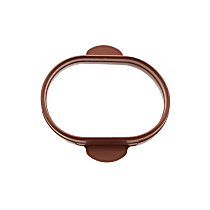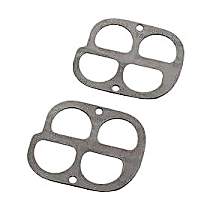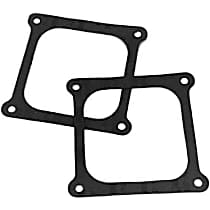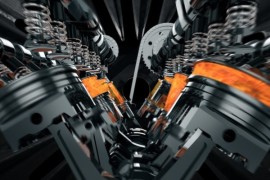{
"lazyNodes": false,
"abFitnotesFlag": false,
"abCrawlReviews": false,
"productOptionsCookie": false,
"orderDelayFlag": false,
"skipSessionCookie": false,
"covidMessage": false,
"fullTitleCookie": false,
"nrLoggerCookie": false,
"checkoutReviewCookie": false,
"productOptionSeqCookie": false,
"maintenanceFlag": false,
"bufferETACookie": false,
"multiShippingDiscountFlag": false,
"newFitmentFlag": false,
"surveyOptInFlag": false,
"crossSellFlag": false,
"skuMappingFlag": false,
"paySplitCookie": false,
"callDisableFlag": false,
"zipPaymentFlag": "u",
"hassleFreeReturn": false,
"lifetimeReplacement": false,
"cpn_off": false
}Porsche Cayenne Intake Manifold Gaskets
Shop Catalog
![]() WARNING: This product can expose you to chemical which is known to the State of California to cause cancer and birth defects or other reproductive harm. For more information go to www.P65Warnings.ca.gov.
WARNING: This product can expose you to chemical which is known to the State of California to cause cancer and birth defects or other reproductive harm. For more information go to www.P65Warnings.ca.gov.
![]() WARNING: This product can expose you to chemical which is known to the State of California to cause cancer and birth defects or other reproductive harm. For more information go to www.P65Warnings.ca.gov.
WARNING: This product can expose you to chemical which is known to the State of California to cause cancer and birth defects or other reproductive harm. For more information go to www.P65Warnings.ca.gov.
![]() WARNING: This product can expose you to chemical which is known to the State of California to cause cancer and birth defects or other reproductive harm. For more information go to www.P65Warnings.ca.gov.
WARNING: This product can expose you to chemical which is known to the State of California to cause cancer and birth defects or other reproductive harm. For more information go to www.P65Warnings.ca.gov.
![]() WARNING: This product can expose you to chemical which is known to the State of California to cause cancer and birth defects or other reproductive harm. For more information go to www.P65Warnings.ca.gov.
WARNING: This product can expose you to chemical which is known to the State of California to cause cancer and birth defects or other reproductive harm. For more information go to www.P65Warnings.ca.gov.
![]() WARNING: This product can expose you to chemical which is known to the State of California to cause cancer and birth defects or other reproductive harm. For more information go to www.P65Warnings.ca.gov.
WARNING: This product can expose you to chemical which is known to the State of California to cause cancer and birth defects or other reproductive harm. For more information go to www.P65Warnings.ca.gov.
![]() WARNING: This product can expose you to chemical which is known to the State of California to cause cancer and birth defects or other reproductive harm. For more information go to www.P65Warnings.ca.gov.
WARNING: This product can expose you to chemical which is known to the State of California to cause cancer and birth defects or other reproductive harm. For more information go to www.P65Warnings.ca.gov.
![]() WARNING: This product can expose you to chemical which is known to the State of California to cause cancer and birth defects or other reproductive harm. For more information go to www.P65Warnings.ca.gov.
WARNING: This product can expose you to chemical which is known to the State of California to cause cancer and birth defects or other reproductive harm. For more information go to www.P65Warnings.ca.gov.
![]() WARNING: This product can expose you to chemical which is known to the State of California to cause cancer and birth defects or other reproductive harm. For more information go to www.P65Warnings.ca.gov.
WARNING: This product can expose you to chemical which is known to the State of California to cause cancer and birth defects or other reproductive harm. For more information go to www.P65Warnings.ca.gov.
![]() WARNING: This product can expose you to chemical which is known to the State of California to cause cancer and birth defects or other reproductive harm. For more information go to www.P65Warnings.ca.gov.
WARNING: This product can expose you to chemical which is known to the State of California to cause cancer and birth defects or other reproductive harm. For more information go to www.P65Warnings.ca.gov.
![]() WARNING: This product can expose you to chemical which is known to the State of California to cause cancer and birth defects or other reproductive harm. For more information go to www.P65Warnings.ca.gov.
WARNING: This product can expose you to chemical which is known to the State of California to cause cancer and birth defects or other reproductive harm. For more information go to www.P65Warnings.ca.gov.
![]() WARNING: This product can expose you to chemical which is known to the State of California to cause cancer and birth defects or other reproductive harm. For more information go to www.P65Warnings.ca.gov.
WARNING: This product can expose you to chemical which is known to the State of California to cause cancer and birth defects or other reproductive harm. For more information go to www.P65Warnings.ca.gov.
![]() WARNING: This product can expose you to chemical which is known to the State of California to cause cancer and birth defects or other reproductive harm. For more information go to www.P65Warnings.ca.gov.
WARNING: This product can expose you to chemical which is known to the State of California to cause cancer and birth defects or other reproductive harm. For more information go to www.P65Warnings.ca.gov.
![]() WARNING: This product can expose you to chemical which is known to the State of California to cause cancer and birth defects or other reproductive harm. For more information go to www.P65Warnings.ca.gov.
WARNING: This product can expose you to chemical which is known to the State of California to cause cancer and birth defects or other reproductive harm. For more information go to www.P65Warnings.ca.gov.
![]() WARNING: This product can expose you to chemical which is known to the State of California to cause cancer and birth defects or other reproductive harm. For more information go to www.P65Warnings.ca.gov.
WARNING: This product can expose you to chemical which is known to the State of California to cause cancer and birth defects or other reproductive harm. For more information go to www.P65Warnings.ca.gov.
![]() WARNING: This product can expose you to chemical which is known to the State of California to cause cancer and birth defects or other reproductive harm. For more information go to www.P65Warnings.ca.gov.
WARNING: This product can expose you to chemical which is known to the State of California to cause cancer and birth defects or other reproductive harm. For more information go to www.P65Warnings.ca.gov.
Popular Products
Customer Guides
Common Problems Encountered with a Porsche Cayenne Intake Manifold Gasket
Engines are complicated machines. They need to be running at a hundred percent capacity in order for them to runsmoothly. To do this, all cylinders and all pistons need to be firing at top condition. And what makes these pistons 'fire'? That's the combustion of air and fuel inside the engine, thanks to the intake manifold. The intake manifold gasket, in turn, makes sure that no wayward firing of fuel and air happens outside of the engine. A misfire outside the engine could seriously damage it, causing harm to your car in turn. Right here are some of the things you need to look out for if you want to avoid a bad manifold gasket.
Leaky gasket
The intake manifold gasket works in an environment where the temperatures aren't kept at a constant level. These gaskets suffer from high temperatures and an increased pressure. That's why they succumb to damage and develop leaks. A leaky intake manifold gasket may lower your fuel economy, raise your emissions and contribute to poor engine performance. This may also translate to your engine stopping to run altogether.
Bad idling
When coming to a stop, your car may experience some really bad shakes or shuddering. This can be attributed to the fact that one or more of your intake gaskets may be on the way out. Since they cannot function normally anymore, bad intake gaskets allow too much fuel or air into the cylinders. Usually, when one of your intake gaskets goes bad, your engine suddenly feels a bit more shuddery or shaky than normal.
Whistle blow
You can also know a bad intake gasket by the sound it makes. This particular sound can be attributed to a leak or crack in the gasket. Since the intake gasket stops air from escaping or getting into the cylinder, when a leak is present, it makes a small whistling sound. You can also gauge the damage from the sound the gasket makes. A bigger leak or crack will usually produce a more defined sucking sound than a whistle. Aside from the sound, it can also come along with leaking fluids and a rough idle.
Internal leaking
There are leaks which couldn't be seen easily. Internal leaks are one of the trickier situations an intake gasket may go through. In an internal leak, the coolant manages to seep to the inside of the engine, to mix with motor oil. Checking your oil dipstick reveals if you have an internal leak problem. If there is rusty residue along with the milkshake-like consistency of your oil, you might have a leak.
Powerful things happen inside your engine. There's a reason these cannot go out, and that's because of one word: combustion. Combustion occurs when a mixture of air and fuel provides power to your engine. That is why intake manifold gaskets are built tough and durable: because they need to keep combustion in. If combustion manages to get outside, there's no telling what kind of damage or injury it would cause to you or to your car. Here're some tips to keep your intake manifold gasket in top shape:
Checks for cracks or leaks
Being exposed to high temperatures leaves an intake manifold gasket susceptible to leaks and cracks that may lead to a lot of problems. It could start to leak coolant out. The two things that will make this more obvious are steam coming off the engine, to a little puddle underneath the car. Another thing is that your car will become prone to overheating. To avoid this, change your intake manifold gasket.
Look at your fuel economy and emissions
Fuel economy and emissions will begin to soar once you run on a bad intake manifold gasket, which is why you need to be aware of them. A bad intake manifold gasket fails to control the gas mileage and emissions, causing the car to use more gas and the engine to stop. Once you notice a spike in your gas economy, you should start to take a look at your intake gasket and see if it needs to be replaced.
Apply gasket sealant/cement to affected areas
If you cannot replace your gasket yet, for some reason, you can apply a special sealant or cement to the affected area. Doing so will help you to keep your gasket running. It will also mark some improvements to your car, although it is a temporary solution. You should still look for a replacement even if you've patched up the problem for the time being.
Replace your manifold gasket
It is still the best way to go when dealing with intake manifold gasket leaks. Replacing your manifold gasket with a new part will have your car running as well as it did with the old sealant. Remember to choose the right intake gasket for your car to make sure that it will run as smoothly as possible.

























